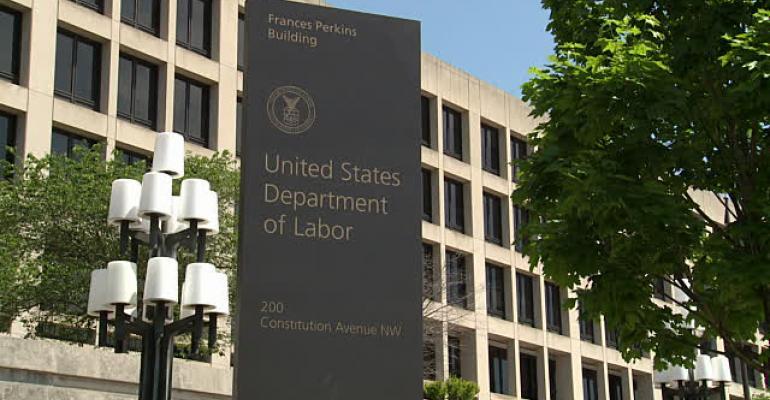Critics of the Department of Labor’s latest fiduciary rule filed a lawsuit last week challenging its validity in the 5th U.S. Circuit Court of Appeals, hoping the court will vacate the rule as it did with a previous rule enacted by the Obama administration.
The Federation of Americans for Consumer Choice (FACC), a Texas-based trade organization for insurance agents and agencies, filed the suit along with several advisors and firms in the appeals court that covers Texas, Mississippi and Louisiana. The lawsuit alleges that the new interpretation of the rule still expands the definition of a fiduciary, resurfacing the same problems the 5th Circuit Court had with the Obama-era rule. The FACC also argues the rule could adversely affect consumers who could benefit from fixed insurance products.
“This New Interpretation carries forward the core problem the 5th Circuit identified in vacating the Fiduciary Rule the first time: DOL’s impermissible effort to rewrite and expand the definition of a fiduciary under ERISA and the Code,” the suit reads. “Pouring the same old wine into a new bottle does not change the result.”
In 2018, the 5th Circuit vacated the original rule passed during the Obama administration, with the Trump administration finally releasing its own follow-up proposal in the summer of 2020. The Trump-era rule detailed how fiduciaries were allowed to make certain recommendations provided they adhered to certain “Impartial Conduct Standards,” which were intended to align with the Securities and Exchange Commission’s Regulation Best Interest.
The rule went into effect in February of last year, though the DOL later announced it would be delaying enforcement on the rule through the early part of this year and would not enforce rollover requirements through the end of June.
Though some consumer advocates criticized the Trump-era rule for purportedly weakening investor protections, some did endorse the rule, with former Consumer Federation of America Director of Investor Protection Barbara Roper saying it was “better than nothing” for the short term.
Notably, the rule asserted that the 1975 “five-part test” had been automatically reinstated after the 2018 ruling vacated the Obama-era rule, but in the new suit, the FACC argued that the new rule still aims to drastically change who would fall under ERISA fiduciary regulatory requirements.
Part of the five-part test determining whether fiduciary status should apply includes whether that advice is part of an “ongoing” relationship, but the new rule’s guidance clarified that a first-time recommendation could qualify provided that client and advisor intended to meet again. The plaintiffs argued the new guidance meant that advice given by anyone who had not previously done so before but might in the future would fall under fiduciary status.
“This semantic distinction is meaningless from a practical standpoint, as all Investment Professionals seek to establish and maintain relationships with customers and potential customers, not avoid them,” the suit read.
In a November panel sponsored by the Foreside consulting group, managing director Jaqueline Hummel said the rule’s changes to rollover recommendations were notable, as previously advisors had a “free bite at the apple” in offering advice provided it wasn’t offered in the midst of an ongoing relationship. Stephen Wilkes, a partner with the Wagner Law Group, said the DOL had fought “tooth and nail” for years to expand ERISA’s fiduciary status to include those who specifically structured their activities to escape the prongs of the five-part test. To Wilkes, the new rule reinterprets the same statute with the same regulation.
“There’s no change in words. Their interpretive stance is more expansive than ever, and they’re really tough on it,” he said. “For those who want to engage in business in a non-fiduciary capacity, I think it’s harder and more challenging than ever.”
Phyllis Borzi , the former DOL assistant secretary for employee benefits security, said she was not surprised to see the suit filed in the Northern District of Texas in the 5th Circuit, deeming it the “go-to place” for parties looking to challenge a DOL rule. Borzi, who served in the Obama administration during the previous rule’s formation, said the suit raised several questions; she wondered what the harm could be for plaintiffs, as the good-faith delay on enforcement had only recently ended.
Borzi also questioned why the FACC was filing the suit absent many of the players in the previous suit against the Obama-era rule; in that instance, plaintiffs included the U.S. Chamber of Commerce, the Securities Industry and Financial Markets Association and the American Council of Life Insurers. Borzi also argued the brief misstated what was in the Trump-era fiduciary exemption. While the Trump administration did not appeal the decision vacating the Obama-era rule, she expected a strong response from the Biden administration to this suit.
“I don’t think it’s a particularly strong legal brief, but who knows what the 5th Circuit will do,” she said.





